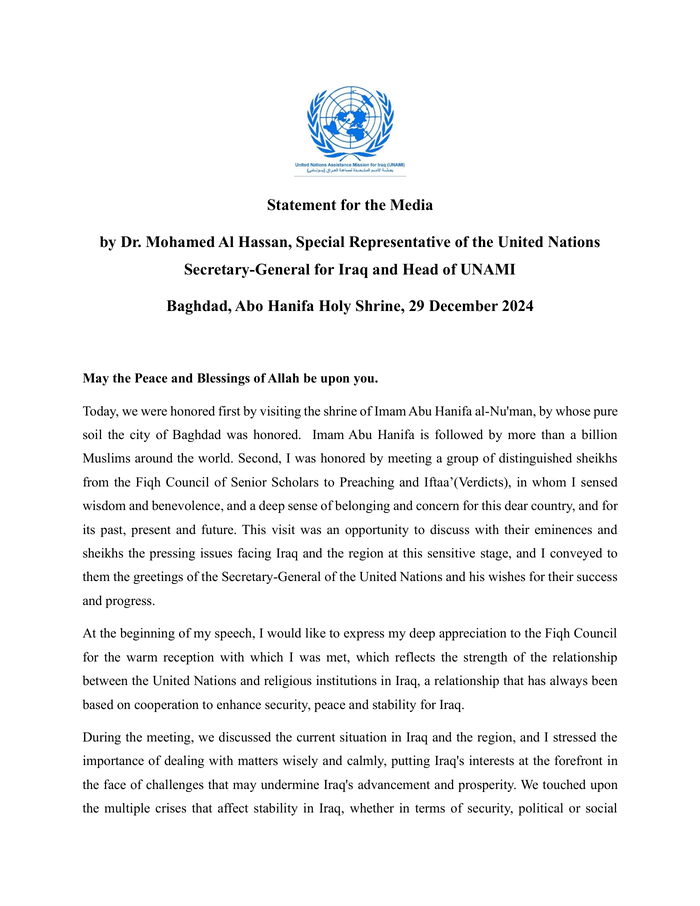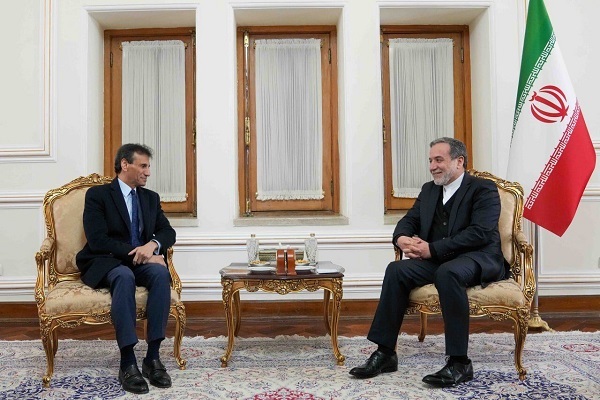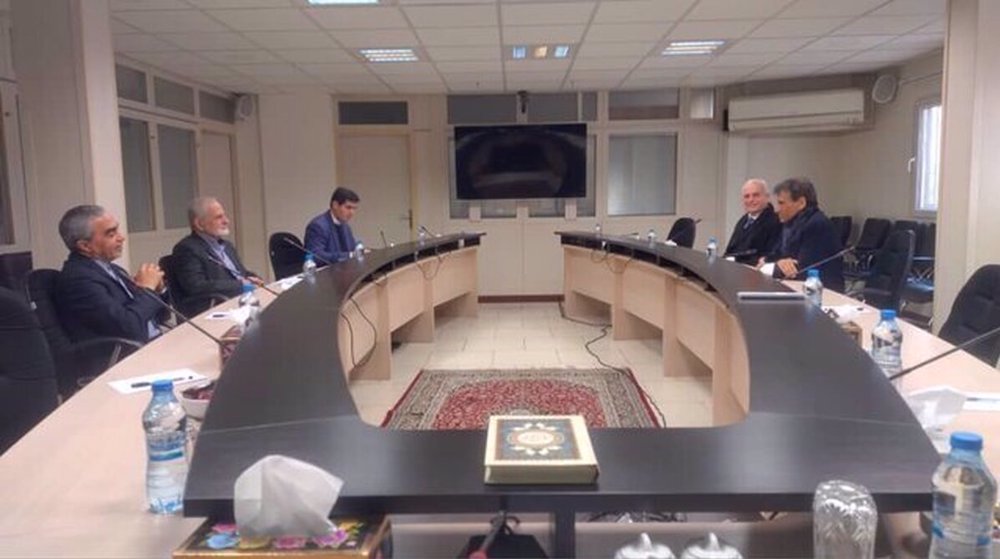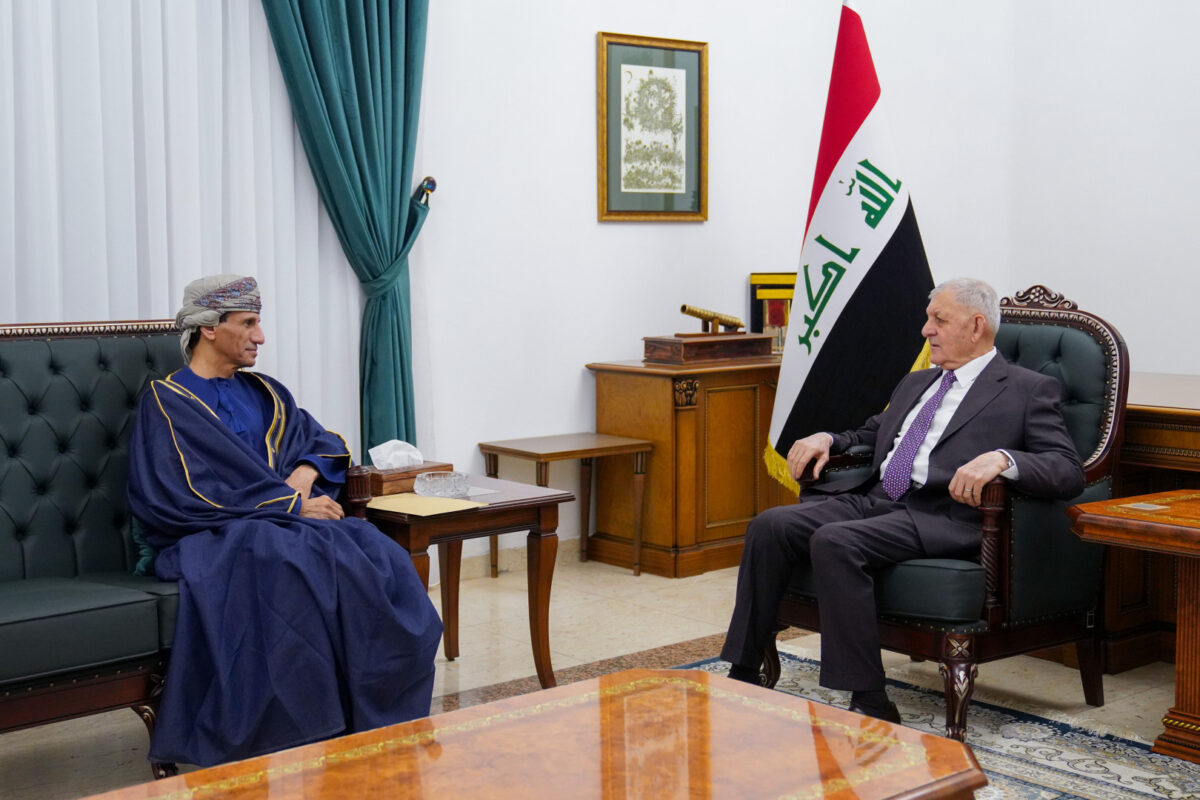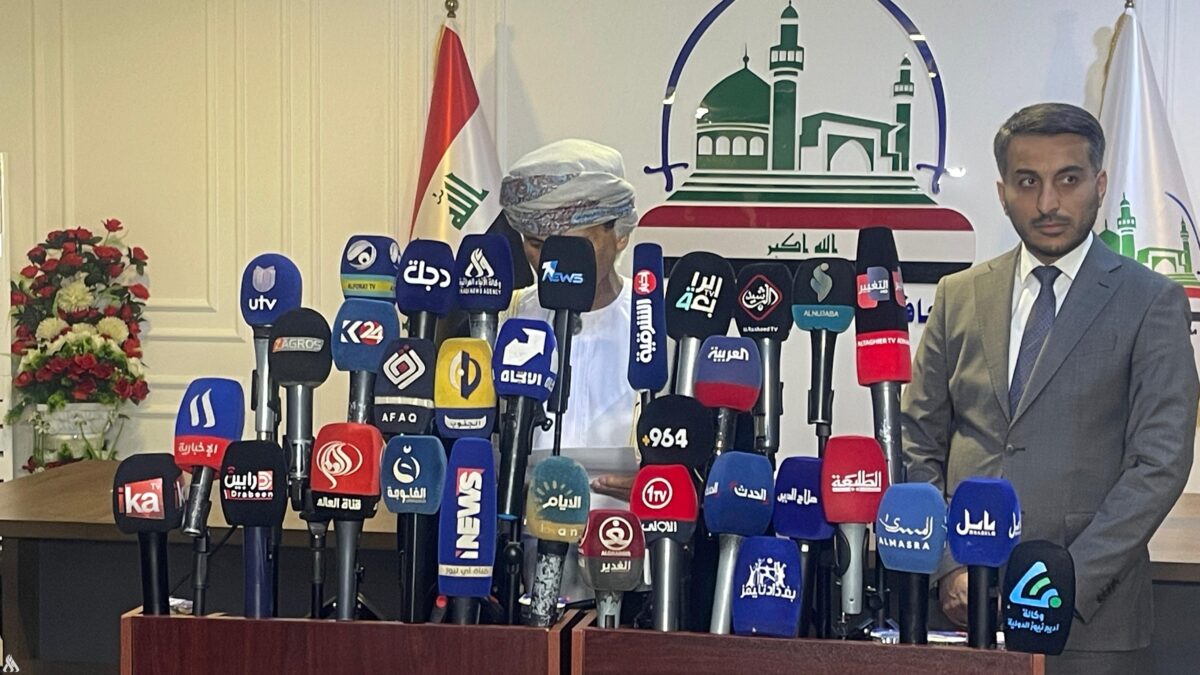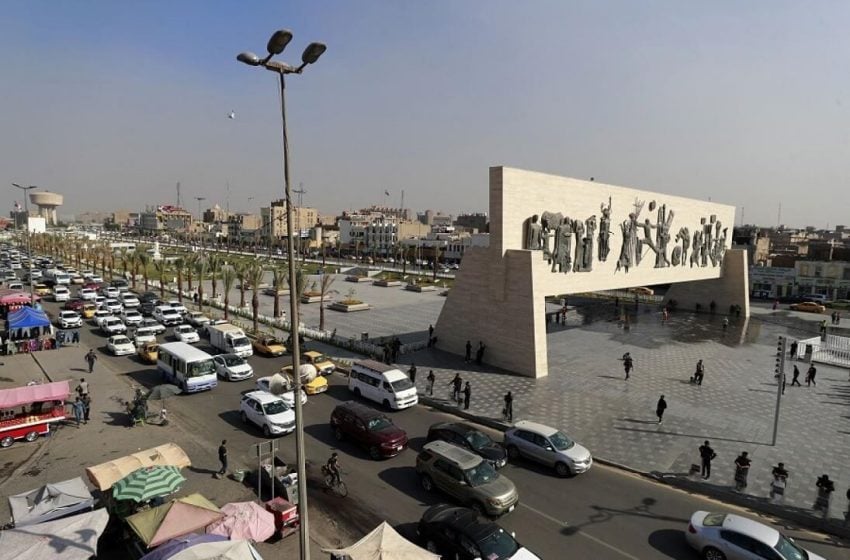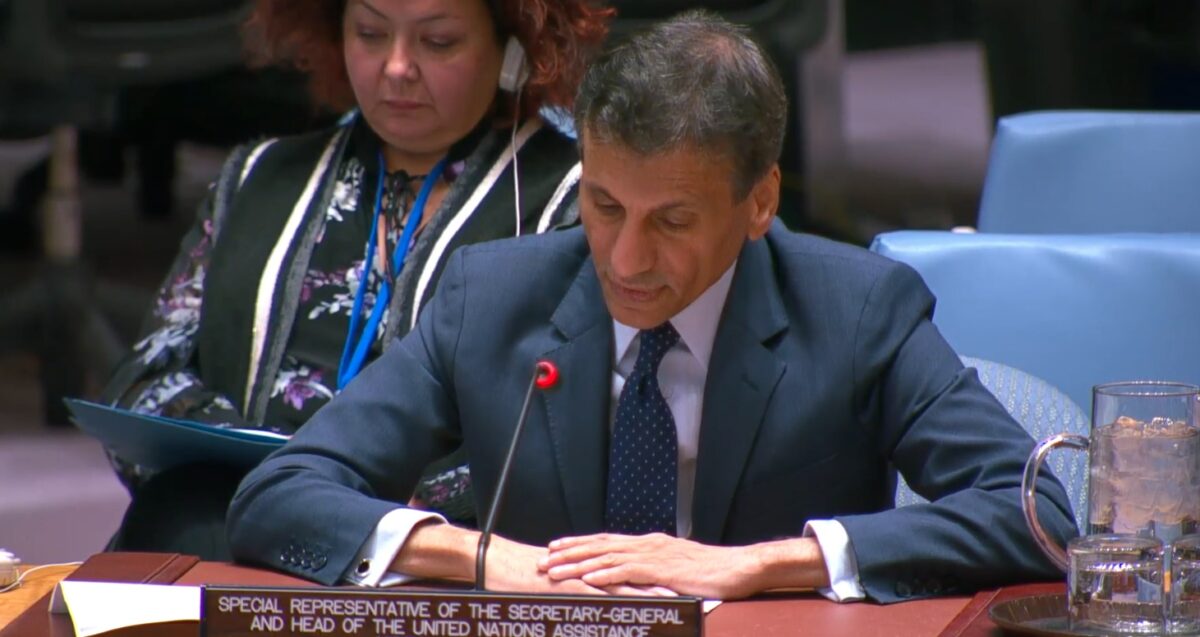Log into Facebook | Facebook1&&document.location.reload()})(true, “m_pixel_ratio”, “wd”, false);]]>[]You must log in first.

 Add a new device”,”1_572460b539878eceb021da6f0ba4ad27″:”Search in conversation”,”1_588c13ae9c29e4cad57ff0623473419b”:”You can’t message this group”,”1_59e4d389c284d58c6a7006f6b0562811″:”Photo reminders”,”1_5a928f58cc901c2f036154287466ac52″:”AI-assisted message”,”1_5af74bfaddbfdad2526294491119b1ac”:”Call notifications”,”1_5b15ff8357f34309683c127f15840806″:”Chat plugin”,”1_5b4abffee3f305389a50710f7d485df8″:”Introducing AI stickers”,”1_5db467841ea204babe44c0bb4275c013″:”Message sent”,”1_5dbfacce1399e2f5cb7a6380beba0d09″:”This may take a moment…”,”1_67045d680945154400cf43a419e4ff9b”:”Please update your app”,”1_6831028223b7159f4a16a762309aeda5″:”Invite with a link”,”1_68667c64d4e948188b48f13c7b8324c0″:”Open Facebook app”,”1_69b4fbe4cc084fbff4fcf68d2f9d5fed”:”Charge your Bluetooth keys regularly.”,”1_6cd66115c7adbd7d8d450aaa8a5015d9″:”Contact phone number”,”1_74630a0214a11fa5068b0655daafe2de”:”Facebook user”,”1_752a4442f6eb09a9c79427caefd174c5″:”4 things to know about your information”,”1_76f971d0cf5dc8a40e43aa6592bf6015″:”{num_activities} activities”,”1_79cb46c945b63a0e9c8bd77518fd38f0″:”Add a profile picture”,”1_7a4acef2efaf880fb516077a756bea63″:”Image ID not returned.”,”1_8842669d806d74dfddee6ca515f2d8db”:”Look up info”,”1_8c442034b2e9c1bcc394eb6907b1d510″:”You’ll need to log in with Workplace to continue this video chat.”,”1_92469592130a0e85a5e996fa12296099″:”Account details”,”1_9dbc389a7657e7c498fe3cd2e8c903b9″:”Messenger preview”,”1_a02773f3eb15c1a027aacc96b97f526f”:”Invalid link”,”1_a2a5724aff5a7cca2d69a4e30e754431″:”Open System Preferences, then use the Security & Privacy controls to grant Workplace Chat access to the camera and microphone. You may need to restart the app for the settings to be applied.”,”1_aa3f089a4051c1e5ed29b0473ecb462c”:”Last name”,”1_aa408b4afeb14b97cfcc9915842b0b00″:”Confirm your identity”,”1_aa542254b59b7d679b6fdb93590402d3″:”Show picture-in-picture”,”1_b2fcaaf664421e83c164b2db208e6c2b”:”Dance party”,”1_bac81400de6624c1e42b308333c30946″:”Move to grid”,”1_beebce762afa64542777f56c09d80178″:”How to add friends on Messenger Kids”,”1_c0a187c52a5eda47cc616d9da9d48264″:”This lets you play Apple Music tracks, add tracks to your music library and more.”,”1_c0bf6a1e1c71e84db2d85d977ea0352c”:”You asked to chat with {name1}.”,”1_c470052944bf04f16919dc993025b1f3″:”Send separately”,”1_c65fba5a9f5914e3837eddb303417521″:”Placed on {date} · Canceled”,”1_c70d03f023ad810666fb2b89f962b34f”:”Blue/yellow”,”1_c995f1a5f939c822beefb3ff278bf59c”:”Thanks for being a superstar in this chat!”,”1_cd4fecb8aead25c0effd4ac632f98755″:”Cut over this chat to E2EE”,”1_d138dd68d66991762d0960a448c9dbf1″:”Chat members”,”1_d2306e12f55ac0dad00099ff94a9ecce”:”Install Workplace Chat audio sharing software?”,”1_d2abcef26824c99a9b7b66ebfd5b36a8″:”Manage folders”,”1_d47fd6e064b6d1afcb5e5d3674dff1e2″:”Start chatting”,”1_d757e02fa81fb3f8bb93135f107c6516″:”Test speaker”,”1_db1d708e4daa1d62b46287504eae8acc”:”This video can’t be sent”,”1_df5b853bbb16433e2ce5f781de7d297b”:”Squad hang”,”1_e4cad6566ee6fa7548d52ba7824506c0″:”Remove address”,”1_e67d8767d558befbca8c04d5b99d91d9″:”Draw a necklace”,”1_e811fc5925e4dcd78c046551cb24e889″:”This chat will show as unread”,”1_ed32b0c87ff94ede7145d9b17ba192ba”:”View {remainingCount} more photos”,”1_ee45d6f16d585bfe6cebb6800c4822d4″:”Add to her picture”,”1_f5bffa9a6c448e63ca61155760dca5fd”:”No messages”,”1_f6ffd6ae71c283f8aec7c7bc2cbfa289″:”Open audio device selector menu”,”1_fc4f960e763c5eedcbf5c27cf0411d4b”:”{name1} wants to add {lastPendingKifTargetName} as a friend”,”1_fe319617901612fc3c881e2d69ade21d”:”Choose kids for {name1}, {name2} and {name count} others to chat with”}},551],[“AnalyticsCoreData”,[],{device_id:”$^|AcaDnO6vE2y9TK1WnUk4QFb4aaH4FVLJ4aGeDP9buDT9G4EYkc9QlQSVsW72BHU-xUF8mCslVjjohJ4XJsty5EfaoEh2qe7-yonzt2O39SBNsM1XcgN_gd0|fd.Acb0JgX1oXGbi0RK554rS7rTEAZaRp76sSB6NKeRgH1-rQ8X72Zi832i3e_Zx2HX_HV_SuyW9qcE2Ugf3PlFW8mV”,app_id:”412378670482″,enable_bladerunner:false,enable_ack:true,push_phase:”C3″,enable_observer:false,enable_cmcd_observer:false,enable_dataloss_timer:false,enable_fallback_for_br:true,queue_activation_experiment:false,max_delay_br_queue:60000,max_delay_br_queue_immediate:3,max_delay_br_init_not_complete:3000,consents:{},app_universe:1,br_stateful_migration_on:true,enable_non_fb_br_stateless_by_default:false,use_falco_as_mutex_key:false,is_intern:false,enable_session_id_bug_fix:true},5237]],elements:[[“__elem_de5177dd_0_0_Tb”,”u_0_0_9p”,1],[“__elem_921b58ef_0_0_aB”,”login_form”,2],[“__elem_e24cb174_0_0_yP”,”m_login_password”,1],[“__elem_7216e2ae_0_2_CH”,”u_0_1_rX”,1],[“__elem_e03291d5_0_1_mo”,”u_0_2_Ea”,1],[“__elem_e03291d5_0_0_Wz”,”u_0_3_dl”,1],[“__elem_7216e2ae_0_0_Du”,”login_password_step_element”,1],[“__elem_8a020238_0_0_VH”,”forgot-password-link”,1],[“__elem_7216e2ae_0_1_uD”,”signup_button_area”,1],[“__elem_e980dec4_0_0_nL”,”signup-button”,1],[“__elem_7216e2ae_0_3_0I”,”u_0_4_n8″,1],[“__elem_eed16c0a_0_0_9B”,”u_0_5_Yk”,1],[“__elem_a588f507_0_0_bN”,”u_0_6_8X”,1],[“__elem_a588f507_0_1_h1″,”u_0_7_0g”,1],[“__elem_0cdc66ad_0_0_m/”,”u_0_9_Fm”,1],[“__elem_0cdc66ad_0_1_Sm”,”u_0_a_qk”,1]],require:[[“ForgetPasswordAutoSearch”,”addListenerForgetPasswordAutoSearch”,[],[“m_login_email”,”m_login_auto_search_form_contactpoint_hidden_input”,”m_login_auto_search_form_forgot_password_button”]],[“MLoginController”,”initAccountRecoveryFunnelLogging”,[“__elem_8a020238_0_0_VH”],[{__m:”__elem_8a020238_0_0_VH”},”click_forget_password”,”LIdeZyXXUKL-D85WEiR-7GaN”]],[“MGetInstalledRelatedApps”,”logmTouchInstalledRelatedApps”,[],[“apps_installed_login_view”,”LIdeZyXXUKL-D85WEiR-7GaN”]],[“BrowserPrefillLogging”,”initContactpointFieldLogging”,[],[{contactpointFieldID:”m_login_email”,serverPrefill:””}]],[“BrowserPrefillLogging”,”initPasswordFieldLogging”,[],[{passwordFieldID:”m_login_password”}]],[“PlatformDialogCBTSetter”,”setCBTInFormAndLog”,[“__elem_921b58ef_0_0_aB”],[{__m:”__elem_921b58ef_0_0_aB”},”client_logged_out_init_impression”]],[“MLoginView”,”disableOnSubmit”,[“__elem_921b58ef_0_0_aB”,”__elem_7216e2ae_0_0_Du”],[{__m:”__elem_921b58ef_0_0_aB”},{__m:”__elem_7216e2ae_0_0_Du”}]],[“MLoginController”,”initRegButton”,[“__elem_7216e2ae_0_1_uD”],[{root:{__m:”__elem_7216e2ae_0_1_uD”},regURI:”/reg-no-deeplink/?logger_id&is_two_steps_login=0&cid=103&next=https%3A%2F%2Fm.facebook.com%2F100064670590472%2Fphotos%2F990232339809110%2F”,useRegToLogin:true}]],[“MLoginController”,”initLoginForm”,[“__elem_de5177dd_0_0_Tb”],[{root:{__m:”__elem_de5177dd_0_0_Tb”},ajaxURI:”/login/device-based/login/async/?next=https%3A%2F%2Fm.facebook.com%2F100064670590472%2Fphotos%2F990232339809110%2F&refsrc=deprecated&lwv=100″,clearOnDelete:false,listenKeyDown:false,isTwoStepsLogin:false,isActionLoggingEnabled:true,isCredsManagerEnabled:false,isCredsSavingEnabled:true,isPasswordlessEnabled:false,doNotShowUserHeader:false,shouldWaitForPasswordSave:false,onErrorRegURI:”/r.php”,shouldAutoLandOnStep2:false,shouldPrefillJioHeaderForRegFromLogin:false,shouldProcessUserConsentForTokenHeader:false,shouldProcessUserConsentForHeader:false,shouldShowSmartLockSelector:false,shouldRunBotDetection:false,clearPrefillMaskOnKeydown:false,datrCookie:”LIdeZyXXUKL-D85WEiR-7GaN”,pubKeyData:{publicKey:”b927019663bc25f48bbd58a74b4ae50dcb57e8233e56b87c4925f974456cfd12″,keyId:77},shouldUseEmailDomainTypeahead:false,showDuoLikePasswordless:false,showSingleStepDuoLikePasswordless:false,trackingPreference:”install_from_passwordless_flow”,delayInit:0}]],[“MPasswordPlainTextToggle”,”init”,[“__elem_e24cb174_0_0_yP”,”__elem_7216e2ae_0_2_CH”,”__elem_e03291d5_0_0_Wz”,”__elem_e03291d5_0_1_mo”],[{__m:”__elem_e24cb174_0_0_yP”},{__m:”__elem_7216e2ae_0_2_CH”},{__m:”__elem_e03291d5_0_0_Wz”},{__m:”__elem_e03291d5_0_1_mo”}]],[“MServiceWorkerLoginAndLogoutListener”,”listen”,[],[“login_button_block”,”login”,”/sw?s=push”,null]],[“MTouchable”],[“MBlockingTouchable”,”init”,[“__elem_e980dec4_0_0_nL”],[{__m:”__elem_e980dec4_0_0_nL”}]],[“GHLSurvey”,”survey”,[],[]],[“MScrollPositionSaver”],[“MUnsupportedBrowserBanner”,”register”,[“__elem_7216e2ae_0_3_0I”],[{__m:”__elem_7216e2ae_0_3_0I”}]],[“MStoriesRing”,”setupStoryRingForUpdates”,[],[“m_group_stories_container”]],[“InitMAjaxify”],[“MLogoutClearCache”],[“LoadingIndicator”,”init”,[“__elem_eed16c0a_0_0_9B”,”__elem_a588f507_0_0_bN”,”__elem_a588f507_0_1_h1″],[{__m:”__elem_eed16c0a_0_0_9B”},{__m:”__elem_a588f507_0_0_bN”},{__m:”__elem_a588f507_0_1_h1″}]],[“MPageError”],[“MPageHeaderAccessibility”],[“MBlockingTouchable”,”init”,[“__elem_0cdc66ad_0_0_m/”],[{__m:”__elem_0cdc66ad_0_0_m/”}]],[“MBlockingTouchable”,”init”,[“__elem_0cdc66ad_0_1_Sm”],[{__m:”__elem_0cdc66ad_0_1_Sm”}]],[“MLoadingIndicator”,”init”,[],[“u_0_8_GJ”]],[“LogHistoryListeners”],[“MLogging”,”main”,[],[{refid:9}]],[“RemoteDevice”,”init”,[],[{performHardwareDetection:false,hashId:null,vpd:false}]],[“Artillery”],[“MLinkLoggedOut”,”setupListener”,[],[{impression_param_name:”_se_imp”,impression_id:”03C7gpOqaUV0pwPKG”}]],[“MLinkHack”],[“MModalDialogInit”],[“MVerifyCache”,”main”,[],[{viewer:0}]],[“EventProfiler”],[“MPageNavigationTracking”,”init”,[],[]],[“FalcoLoggerTransports”,”attach”,[],[]],[“MCoreDeferred”],[“FbtLogging”],[“IntlQtEventFalcoEvent”],[“MPageControllerImpl”],[“LogWebMemoryUsageFalcoEvent”],[“TransportSelectingClientSingletonConditional”],[“MPageFetcherImpl”],[“json-bigint”],[“RequireDeferredReference”,”unblock”,[],[[“FbtLogging”,”IntlQtEventFalcoEvent”,”MPageControllerImpl”,”LogWebMemoryUsageFalcoEvent”,”TransportSelectingClientSingletonConditional”,”MPageFetcherImpl”,”json-bigint”],”sd”]],[“RequireDeferredReference”,”unblock”,[],[[“FbtLogging”,”IntlQtEventFalcoEvent”,”MPageControllerImpl”,”LogWebMemoryUsageFalcoEvent”,”TransportSelectingClientSingletonConditional”,”MPageFetcherImpl”,”json-bigint”],”css”]]],pre_display_requires:[[“AddressBar”,”setupLoadListener”,[],[],4],[“MobileBigPipeStratcomProxy”,”init”,[],[],4],[“Stratcom”,”init”,[],[],4],[“MViewport”,”init”,[],[],4],[“MPageController”,”init”,[],[],4],[“ViewportDimensions”,”init”,[],[],4],[“onSyncTTI”,”run”,[],[],4],[“MLiteInit”,”init”,[],[],4]]},hsrp:{hsdp:{bxData:{“875231″:{uri:”https://static.xx.fbcdn.net/rsrc.php/yT/r/aGT3gskzWBf.ico”}},clpData:{“6476″:{r:1000,s:1},”1744178″:{r:1,s:1},”1814852″:{r:1},”1838142″:{r:1,s:1},”1039″:{r:1,s:1},”1942319″:{r:1,s:1},”1848815″:{r:10000,s:1},”1765264”:{r:1,s:1}},gkxData:{“1624″:{result:false,hash:null},”2160″:{result:false,hash:null},”5679″:{result:false,hash:null},”7541″:{result:false,hash:null},”8836″:{result:false,hash:null},”20836″:{result:false,hash:null},”20841″:{result:false,hash:null},”20873″:{result:false,hash:null},”20940″:{result:false,hash:null},”21043″:{result:false,hash:null},”21050″:{result:false,hash:null},”21051″:{result:false,hash:null},”21052″:{result:false,hash:null},”21053″:{result:false,hash:null},”21054″:{result:false,hash:null},”21055″:{result:false,hash:null},”21056″:{result:false,hash:null},”21057″:{result:false,hash:null},”21058″:{result:false,hash:null},”21116″:{result:false,hash:null},”21006″:{result:false,hash:null},”21098″:{result:false,hash:null},”21099″:{result:false,hash:null},”20996″:{result:false,hash:null},”1393″:{result:true,hash:null},”3485″:{result:false,hash:null},”4222″:{result:false,hash:null},”4617″:{result:false,hash:null},”7686″:{result:false,hash:null},”7687″:{result:false,hash:null},”20870″:{result:false,hash:null},”21030″:{result:false,hash:null},”21032″:{result:true,hash:null},”21075″:{result:false,hash:null},”23433″:{result:false,hash:null},”20839″:{result:false,hash:null},”20840″:{result:false,hash:null},”20842″:{result:false,hash:null},”20995″:{result:true,hash:null},”20948″:{result:false,hash:null},”4341″:{result:false,hash:null},”6323″:{result:false,hash:null},”8049″:{result:false,hash:null},”8523″:{result:false,hash:null},”9861″:{result:false,hash:null},”21062″:{result:false,hash:null},”21063″:{result:false,hash:null},”21069″:{result:false,hash:null},”21071″:{result:false,hash:null},”21072″:{result:false,hash:null},”33056”:{result:false,hash:null}},qexData:{“91″:{r:null},”123″:{r:null},”104″:{r:null},”128″:{r:null},”344″:{r:null},”388”:{r:null}},qplData:{“891”:{r:1}},justknobxData:{“2269″:{r:true},”2552″:{r:false},”1806″:{r:true}}},hblp:{consistency:{rev:1018887261},rsrcMap:{Nczuf4K:{type:”js”,src:”https://static.xx.fbcdn.net/rsrc.php/v4/yq/r/x8giqcPuYme.js”},PpmHlJ8:{type:”js”,src:”https://static.xx.fbcdn.net/rsrc.php/v4iczx4/yG/l/en_US/7qPJNfQ-DgQ.js”},”R+5QPgR”:{type:”js”,src:”https://static.xx.fbcdn.net/rsrc.php/v4/yY/r/E-PnqQL2q4Q.js”},R5w1rCJ:{type:”js”,src:”https://static.xx.fbcdn.net/rsrc.php/v4/yF/r/p55HfXW__mM.js”},gh5Ev9Q:{type:”js”,src:”https://static.xx.fbcdn.net/rsrc.php/v4/yf/r/8e_5axh3Sid.js”},vIXDRtx:{type:”js”,src:”https://static.xx.fbcdn.net/rsrc.php/v4/y4/r/AW0RBtdRy9b.js”},Mp1g5id:{type:”js”,src:”https://static.xx.fbcdn.net/rsrc.php/v4ijp64/yI/l/en_US/WE0AWsCdSt1.js”},V4FN3Vg:{type:”js”,src:”https://static.xx.fbcdn.net/rsrc.php/v4/yB/r/HSuJFqJlKDx.js”},”3opCZkF”:{type:”js”,src:”https://static.xx.fbcdn.net/rsrc.php/v4/yz/r/yYD13V85S49.js”},Gqd0blO:{type:”js”,src:”https://static.xx.fbcdn.net/rsrc.php/v4/yg/r/_WRIwG6VYao.js”},oC5TUNs:{type:”js”,src:”https://static.xx.fbcdn.net/rsrc.php/v4/y7/r/Frg6nEhbM9s.js”},lAjkIbK:{type:”js”,src:”https://static.xx.fbcdn.net/rsrc.php/v4iLl54/yp/l/en_US/EFZOyBzCd8S.js”},lO1ElwZ:{type:”js”,src:”https://static.xx.fbcdn.net/rsrc.php/v4/y4/r/NIu_mPGta86.js”},”9NiATAn”:{type:”js”,src:”https://static.xx.fbcdn.net/rsrc.php/v4/yv/r/yRuFCzueB7p.js”}},compMap:{Cookie:{r:[“Nczuf4K”],be:1},WebSpeedInteractionsTypedLogger:{r:[“Nczuf4K”,”9NiATAn”,”R+5QPgR”,”PpmHlJ8″],rds:{m:[“FbtLogging”,”IntlQtEventFalcoEvent”]},be:1},PerfXSharedFields:{r:[“V4FN3Vg”,”Nczuf4K”],be:1}}}},allResources:[“brfiRST”,”gwXK2pR”,”Nczuf4K”,”PpmHlJ8″,”B8R0RAU”,”tOLrYJa”,”R+5QPgR”,”sTz5iV5″,”R5w1rCJ”,”gh5Ev9Q”,”vIXDRtx”,”Mp1g5id”,”V4FN3Vg”,”3opCZkF”,”Gqd0blO”,”oC5TUNs”,”lAjkIbK”,”lO1ElwZ”]});}));]]>
Add a new device”,”1_572460b539878eceb021da6f0ba4ad27″:”Search in conversation”,”1_588c13ae9c29e4cad57ff0623473419b”:”You can’t message this group”,”1_59e4d389c284d58c6a7006f6b0562811″:”Photo reminders”,”1_5a928f58cc901c2f036154287466ac52″:”AI-assisted message”,”1_5af74bfaddbfdad2526294491119b1ac”:”Call notifications”,”1_5b15ff8357f34309683c127f15840806″:”Chat plugin”,”1_5b4abffee3f305389a50710f7d485df8″:”Introducing AI stickers”,”1_5db467841ea204babe44c0bb4275c013″:”Message sent”,”1_5dbfacce1399e2f5cb7a6380beba0d09″:”This may take a moment…”,”1_67045d680945154400cf43a419e4ff9b”:”Please update your app”,”1_6831028223b7159f4a16a762309aeda5″:”Invite with a link”,”1_68667c64d4e948188b48f13c7b8324c0″:”Open Facebook app”,”1_69b4fbe4cc084fbff4fcf68d2f9d5fed”:”Charge your Bluetooth keys regularly.”,”1_6cd66115c7adbd7d8d450aaa8a5015d9″:”Contact phone number”,”1_74630a0214a11fa5068b0655daafe2de”:”Facebook user”,”1_752a4442f6eb09a9c79427caefd174c5″:”4 things to know about your information”,”1_76f971d0cf5dc8a40e43aa6592bf6015″:”{num_activities} activities”,”1_79cb46c945b63a0e9c8bd77518fd38f0″:”Add a profile picture”,”1_7a4acef2efaf880fb516077a756bea63″:”Image ID not returned.”,”1_8842669d806d74dfddee6ca515f2d8db”:”Look up info”,”1_8c442034b2e9c1bcc394eb6907b1d510″:”You’ll need to log in with Workplace to continue this video chat.”,”1_92469592130a0e85a5e996fa12296099″:”Account details”,”1_9dbc389a7657e7c498fe3cd2e8c903b9″:”Messenger preview”,”1_a02773f3eb15c1a027aacc96b97f526f”:”Invalid link”,”1_a2a5724aff5a7cca2d69a4e30e754431″:”Open System Preferences, then use the Security & Privacy controls to grant Workplace Chat access to the camera and microphone. You may need to restart the app for the settings to be applied.”,”1_aa3f089a4051c1e5ed29b0473ecb462c”:”Last name”,”1_aa408b4afeb14b97cfcc9915842b0b00″:”Confirm your identity”,”1_aa542254b59b7d679b6fdb93590402d3″:”Show picture-in-picture”,”1_b2fcaaf664421e83c164b2db208e6c2b”:”Dance party”,”1_bac81400de6624c1e42b308333c30946″:”Move to grid”,”1_beebce762afa64542777f56c09d80178″:”How to add friends on Messenger Kids”,”1_c0a187c52a5eda47cc616d9da9d48264″:”This lets you play Apple Music tracks, add tracks to your music library and more.”,”1_c0bf6a1e1c71e84db2d85d977ea0352c”:”You asked to chat with {name1}.”,”1_c470052944bf04f16919dc993025b1f3″:”Send separately”,”1_c65fba5a9f5914e3837eddb303417521″:”Placed on {date} · Canceled”,”1_c70d03f023ad810666fb2b89f962b34f”:”Blue/yellow”,”1_c995f1a5f939c822beefb3ff278bf59c”:”Thanks for being a superstar in this chat!”,”1_cd4fecb8aead25c0effd4ac632f98755″:”Cut over this chat to E2EE”,”1_d138dd68d66991762d0960a448c9dbf1″:”Chat members”,”1_d2306e12f55ac0dad00099ff94a9ecce”:”Install Workplace Chat audio sharing software?”,”1_d2abcef26824c99a9b7b66ebfd5b36a8″:”Manage folders”,”1_d47fd6e064b6d1afcb5e5d3674dff1e2″:”Start chatting”,”1_d757e02fa81fb3f8bb93135f107c6516″:”Test speaker”,”1_db1d708e4daa1d62b46287504eae8acc”:”This video can’t be sent”,”1_df5b853bbb16433e2ce5f781de7d297b”:”Squad hang”,”1_e4cad6566ee6fa7548d52ba7824506c0″:”Remove address”,”1_e67d8767d558befbca8c04d5b99d91d9″:”Draw a necklace”,”1_e811fc5925e4dcd78c046551cb24e889″:”This chat will show as unread”,”1_ed32b0c87ff94ede7145d9b17ba192ba”:”View {remainingCount} more photos”,”1_ee45d6f16d585bfe6cebb6800c4822d4″:”Add to her picture”,”1_f5bffa9a6c448e63ca61155760dca5fd”:”No messages”,”1_f6ffd6ae71c283f8aec7c7bc2cbfa289″:”Open audio device selector menu”,”1_fc4f960e763c5eedcbf5c27cf0411d4b”:”{name1} wants to add {lastPendingKifTargetName} as a friend”,”1_fe319617901612fc3c881e2d69ade21d”:”Choose kids for {name1}, {name2} and {name count} others to chat with”}},551],[“AnalyticsCoreData”,[],{device_id:”$^|AcaDnO6vE2y9TK1WnUk4QFb4aaH4FVLJ4aGeDP9buDT9G4EYkc9QlQSVsW72BHU-xUF8mCslVjjohJ4XJsty5EfaoEh2qe7-yonzt2O39SBNsM1XcgN_gd0|fd.Acb0JgX1oXGbi0RK554rS7rTEAZaRp76sSB6NKeRgH1-rQ8X72Zi832i3e_Zx2HX_HV_SuyW9qcE2Ugf3PlFW8mV”,app_id:”412378670482″,enable_bladerunner:false,enable_ack:true,push_phase:”C3″,enable_observer:false,enable_cmcd_observer:false,enable_dataloss_timer:false,enable_fallback_for_br:true,queue_activation_experiment:false,max_delay_br_queue:60000,max_delay_br_queue_immediate:3,max_delay_br_init_not_complete:3000,consents:{},app_universe:1,br_stateful_migration_on:true,enable_non_fb_br_stateless_by_default:false,use_falco_as_mutex_key:false,is_intern:false,enable_session_id_bug_fix:true},5237]],elements:[[“__elem_de5177dd_0_0_Tb”,”u_0_0_9p”,1],[“__elem_921b58ef_0_0_aB”,”login_form”,2],[“__elem_e24cb174_0_0_yP”,”m_login_password”,1],[“__elem_7216e2ae_0_2_CH”,”u_0_1_rX”,1],[“__elem_e03291d5_0_1_mo”,”u_0_2_Ea”,1],[“__elem_e03291d5_0_0_Wz”,”u_0_3_dl”,1],[“__elem_7216e2ae_0_0_Du”,”login_password_step_element”,1],[“__elem_8a020238_0_0_VH”,”forgot-password-link”,1],[“__elem_7216e2ae_0_1_uD”,”signup_button_area”,1],[“__elem_e980dec4_0_0_nL”,”signup-button”,1],[“__elem_7216e2ae_0_3_0I”,”u_0_4_n8″,1],[“__elem_eed16c0a_0_0_9B”,”u_0_5_Yk”,1],[“__elem_a588f507_0_0_bN”,”u_0_6_8X”,1],[“__elem_a588f507_0_1_h1″,”u_0_7_0g”,1],[“__elem_0cdc66ad_0_0_m/”,”u_0_9_Fm”,1],[“__elem_0cdc66ad_0_1_Sm”,”u_0_a_qk”,1]],require:[[“ForgetPasswordAutoSearch”,”addListenerForgetPasswordAutoSearch”,[],[“m_login_email”,”m_login_auto_search_form_contactpoint_hidden_input”,”m_login_auto_search_form_forgot_password_button”]],[“MLoginController”,”initAccountRecoveryFunnelLogging”,[“__elem_8a020238_0_0_VH”],[{__m:”__elem_8a020238_0_0_VH”},”click_forget_password”,”LIdeZyXXUKL-D85WEiR-7GaN”]],[“MGetInstalledRelatedApps”,”logmTouchInstalledRelatedApps”,[],[“apps_installed_login_view”,”LIdeZyXXUKL-D85WEiR-7GaN”]],[“BrowserPrefillLogging”,”initContactpointFieldLogging”,[],[{contactpointFieldID:”m_login_email”,serverPrefill:””}]],[“BrowserPrefillLogging”,”initPasswordFieldLogging”,[],[{passwordFieldID:”m_login_password”}]],[“PlatformDialogCBTSetter”,”setCBTInFormAndLog”,[“__elem_921b58ef_0_0_aB”],[{__m:”__elem_921b58ef_0_0_aB”},”client_logged_out_init_impression”]],[“MLoginView”,”disableOnSubmit”,[“__elem_921b58ef_0_0_aB”,”__elem_7216e2ae_0_0_Du”],[{__m:”__elem_921b58ef_0_0_aB”},{__m:”__elem_7216e2ae_0_0_Du”}]],[“MLoginController”,”initRegButton”,[“__elem_7216e2ae_0_1_uD”],[{root:{__m:”__elem_7216e2ae_0_1_uD”},regURI:”/reg-no-deeplink/?logger_id&is_two_steps_login=0&cid=103&next=https%3A%2F%2Fm.facebook.com%2F100064670590472%2Fphotos%2F990232339809110%2F”,useRegToLogin:true}]],[“MLoginController”,”initLoginForm”,[“__elem_de5177dd_0_0_Tb”],[{root:{__m:”__elem_de5177dd_0_0_Tb”},ajaxURI:”/login/device-based/login/async/?next=https%3A%2F%2Fm.facebook.com%2F100064670590472%2Fphotos%2F990232339809110%2F&refsrc=deprecated&lwv=100″,clearOnDelete:false,listenKeyDown:false,isTwoStepsLogin:false,isActionLoggingEnabled:true,isCredsManagerEnabled:false,isCredsSavingEnabled:true,isPasswordlessEnabled:false,doNotShowUserHeader:false,shouldWaitForPasswordSave:false,onErrorRegURI:”/r.php”,shouldAutoLandOnStep2:false,shouldPrefillJioHeaderForRegFromLogin:false,shouldProcessUserConsentForTokenHeader:false,shouldProcessUserConsentForHeader:false,shouldShowSmartLockSelector:false,shouldRunBotDetection:false,clearPrefillMaskOnKeydown:false,datrCookie:”LIdeZyXXUKL-D85WEiR-7GaN”,pubKeyData:{publicKey:”b927019663bc25f48bbd58a74b4ae50dcb57e8233e56b87c4925f974456cfd12″,keyId:77},shouldUseEmailDomainTypeahead:false,showDuoLikePasswordless:false,showSingleStepDuoLikePasswordless:false,trackingPreference:”install_from_passwordless_flow”,delayInit:0}]],[“MPasswordPlainTextToggle”,”init”,[“__elem_e24cb174_0_0_yP”,”__elem_7216e2ae_0_2_CH”,”__elem_e03291d5_0_0_Wz”,”__elem_e03291d5_0_1_mo”],[{__m:”__elem_e24cb174_0_0_yP”},{__m:”__elem_7216e2ae_0_2_CH”},{__m:”__elem_e03291d5_0_0_Wz”},{__m:”__elem_e03291d5_0_1_mo”}]],[“MServiceWorkerLoginAndLogoutListener”,”listen”,[],[“login_button_block”,”login”,”/sw?s=push”,null]],[“MTouchable”],[“MBlockingTouchable”,”init”,[“__elem_e980dec4_0_0_nL”],[{__m:”__elem_e980dec4_0_0_nL”}]],[“GHLSurvey”,”survey”,[],[]],[“MScrollPositionSaver”],[“MUnsupportedBrowserBanner”,”register”,[“__elem_7216e2ae_0_3_0I”],[{__m:”__elem_7216e2ae_0_3_0I”}]],[“MStoriesRing”,”setupStoryRingForUpdates”,[],[“m_group_stories_container”]],[“InitMAjaxify”],[“MLogoutClearCache”],[“LoadingIndicator”,”init”,[“__elem_eed16c0a_0_0_9B”,”__elem_a588f507_0_0_bN”,”__elem_a588f507_0_1_h1″],[{__m:”__elem_eed16c0a_0_0_9B”},{__m:”__elem_a588f507_0_0_bN”},{__m:”__elem_a588f507_0_1_h1″}]],[“MPageError”],[“MPageHeaderAccessibility”],[“MBlockingTouchable”,”init”,[“__elem_0cdc66ad_0_0_m/”],[{__m:”__elem_0cdc66ad_0_0_m/”}]],[“MBlockingTouchable”,”init”,[“__elem_0cdc66ad_0_1_Sm”],[{__m:”__elem_0cdc66ad_0_1_Sm”}]],[“MLoadingIndicator”,”init”,[],[“u_0_8_GJ”]],[“LogHistoryListeners”],[“MLogging”,”main”,[],[{refid:9}]],[“RemoteDevice”,”init”,[],[{performHardwareDetection:false,hashId:null,vpd:false}]],[“Artillery”],[“MLinkLoggedOut”,”setupListener”,[],[{impression_param_name:”_se_imp”,impression_id:”03C7gpOqaUV0pwPKG”}]],[“MLinkHack”],[“MModalDialogInit”],[“MVerifyCache”,”main”,[],[{viewer:0}]],[“EventProfiler”],[“MPageNavigationTracking”,”init”,[],[]],[“FalcoLoggerTransports”,”attach”,[],[]],[“MCoreDeferred”],[“FbtLogging”],[“IntlQtEventFalcoEvent”],[“MPageControllerImpl”],[“LogWebMemoryUsageFalcoEvent”],[“TransportSelectingClientSingletonConditional”],[“MPageFetcherImpl”],[“json-bigint”],[“RequireDeferredReference”,”unblock”,[],[[“FbtLogging”,”IntlQtEventFalcoEvent”,”MPageControllerImpl”,”LogWebMemoryUsageFalcoEvent”,”TransportSelectingClientSingletonConditional”,”MPageFetcherImpl”,”json-bigint”],”sd”]],[“RequireDeferredReference”,”unblock”,[],[[“FbtLogging”,”IntlQtEventFalcoEvent”,”MPageControllerImpl”,”LogWebMemoryUsageFalcoEvent”,”TransportSelectingClientSingletonConditional”,”MPageFetcherImpl”,”json-bigint”],”css”]]],pre_display_requires:[[“AddressBar”,”setupLoadListener”,[],[],4],[“MobileBigPipeStratcomProxy”,”init”,[],[],4],[“Stratcom”,”init”,[],[],4],[“MViewport”,”init”,[],[],4],[“MPageController”,”init”,[],[],4],[“ViewportDimensions”,”init”,[],[],4],[“onSyncTTI”,”run”,[],[],4],[“MLiteInit”,”init”,[],[],4]]},hsrp:{hsdp:{bxData:{“875231″:{uri:”https://static.xx.fbcdn.net/rsrc.php/yT/r/aGT3gskzWBf.ico”}},clpData:{“6476″:{r:1000,s:1},”1744178″:{r:1,s:1},”1814852″:{r:1},”1838142″:{r:1,s:1},”1039″:{r:1,s:1},”1942319″:{r:1,s:1},”1848815″:{r:10000,s:1},”1765264”:{r:1,s:1}},gkxData:{“1624″:{result:false,hash:null},”2160″:{result:false,hash:null},”5679″:{result:false,hash:null},”7541″:{result:false,hash:null},”8836″:{result:false,hash:null},”20836″:{result:false,hash:null},”20841″:{result:false,hash:null},”20873″:{result:false,hash:null},”20940″:{result:false,hash:null},”21043″:{result:false,hash:null},”21050″:{result:false,hash:null},”21051″:{result:false,hash:null},”21052″:{result:false,hash:null},”21053″:{result:false,hash:null},”21054″:{result:false,hash:null},”21055″:{result:false,hash:null},”21056″:{result:false,hash:null},”21057″:{result:false,hash:null},”21058″:{result:false,hash:null},”21116″:{result:false,hash:null},”21006″:{result:false,hash:null},”21098″:{result:false,hash:null},”21099″:{result:false,hash:null},”20996″:{result:false,hash:null},”1393″:{result:true,hash:null},”3485″:{result:false,hash:null},”4222″:{result:false,hash:null},”4617″:{result:false,hash:null},”7686″:{result:false,hash:null},”7687″:{result:false,hash:null},”20870″:{result:false,hash:null},”21030″:{result:false,hash:null},”21032″:{result:true,hash:null},”21075″:{result:false,hash:null},”23433″:{result:false,hash:null},”20839″:{result:false,hash:null},”20840″:{result:false,hash:null},”20842″:{result:false,hash:null},”20995″:{result:true,hash:null},”20948″:{result:false,hash:null},”4341″:{result:false,hash:null},”6323″:{result:false,hash:null},”8049″:{result:false,hash:null},”8523″:{result:false,hash:null},”9861″:{result:false,hash:null},”21062″:{result:false,hash:null},”21063″:{result:false,hash:null},”21069″:{result:false,hash:null},”21071″:{result:false,hash:null},”21072″:{result:false,hash:null},”33056”:{result:false,hash:null}},qexData:{“91″:{r:null},”123″:{r:null},”104″:{r:null},”128″:{r:null},”344″:{r:null},”388”:{r:null}},qplData:{“891”:{r:1}},justknobxData:{“2269″:{r:true},”2552″:{r:false},”1806″:{r:true}}},hblp:{consistency:{rev:1018887261},rsrcMap:{Nczuf4K:{type:”js”,src:”https://static.xx.fbcdn.net/rsrc.php/v4/yq/r/x8giqcPuYme.js”},PpmHlJ8:{type:”js”,src:”https://static.xx.fbcdn.net/rsrc.php/v4iczx4/yG/l/en_US/7qPJNfQ-DgQ.js”},”R+5QPgR”:{type:”js”,src:”https://static.xx.fbcdn.net/rsrc.php/v4/yY/r/E-PnqQL2q4Q.js”},R5w1rCJ:{type:”js”,src:”https://static.xx.fbcdn.net/rsrc.php/v4/yF/r/p55HfXW__mM.js”},gh5Ev9Q:{type:”js”,src:”https://static.xx.fbcdn.net/rsrc.php/v4/yf/r/8e_5axh3Sid.js”},vIXDRtx:{type:”js”,src:”https://static.xx.fbcdn.net/rsrc.php/v4/y4/r/AW0RBtdRy9b.js”},Mp1g5id:{type:”js”,src:”https://static.xx.fbcdn.net/rsrc.php/v4ijp64/yI/l/en_US/WE0AWsCdSt1.js”},V4FN3Vg:{type:”js”,src:”https://static.xx.fbcdn.net/rsrc.php/v4/yB/r/HSuJFqJlKDx.js”},”3opCZkF”:{type:”js”,src:”https://static.xx.fbcdn.net/rsrc.php/v4/yz/r/yYD13V85S49.js”},Gqd0blO:{type:”js”,src:”https://static.xx.fbcdn.net/rsrc.php/v4/yg/r/_WRIwG6VYao.js”},oC5TUNs:{type:”js”,src:”https://static.xx.fbcdn.net/rsrc.php/v4/y7/r/Frg6nEhbM9s.js”},lAjkIbK:{type:”js”,src:”https://static.xx.fbcdn.net/rsrc.php/v4iLl54/yp/l/en_US/EFZOyBzCd8S.js”},lO1ElwZ:{type:”js”,src:”https://static.xx.fbcdn.net/rsrc.php/v4/y4/r/NIu_mPGta86.js”},”9NiATAn”:{type:”js”,src:”https://static.xx.fbcdn.net/rsrc.php/v4/yv/r/yRuFCzueB7p.js”}},compMap:{Cookie:{r:[“Nczuf4K”],be:1},WebSpeedInteractionsTypedLogger:{r:[“Nczuf4K”,”9NiATAn”,”R+5QPgR”,”PpmHlJ8″],rds:{m:[“FbtLogging”,”IntlQtEventFalcoEvent”]},be:1},PerfXSharedFields:{r:[“V4FN3Vg”,”Nczuf4K”],be:1}}}},allResources:[“brfiRST”,”gwXK2pR”,”Nczuf4K”,”PpmHlJ8″,”B8R0RAU”,”tOLrYJa”,”R+5QPgR”,”sTz5iV5″,”R5w1rCJ”,”gh5Ev9Q”,”vIXDRtx”,”Mp1g5id”,”V4FN3Vg”,”3opCZkF”,”Gqd0blO”,”oC5TUNs”,”lAjkIbK”,”lO1ElwZ”]});}));]]>
Continue reading
